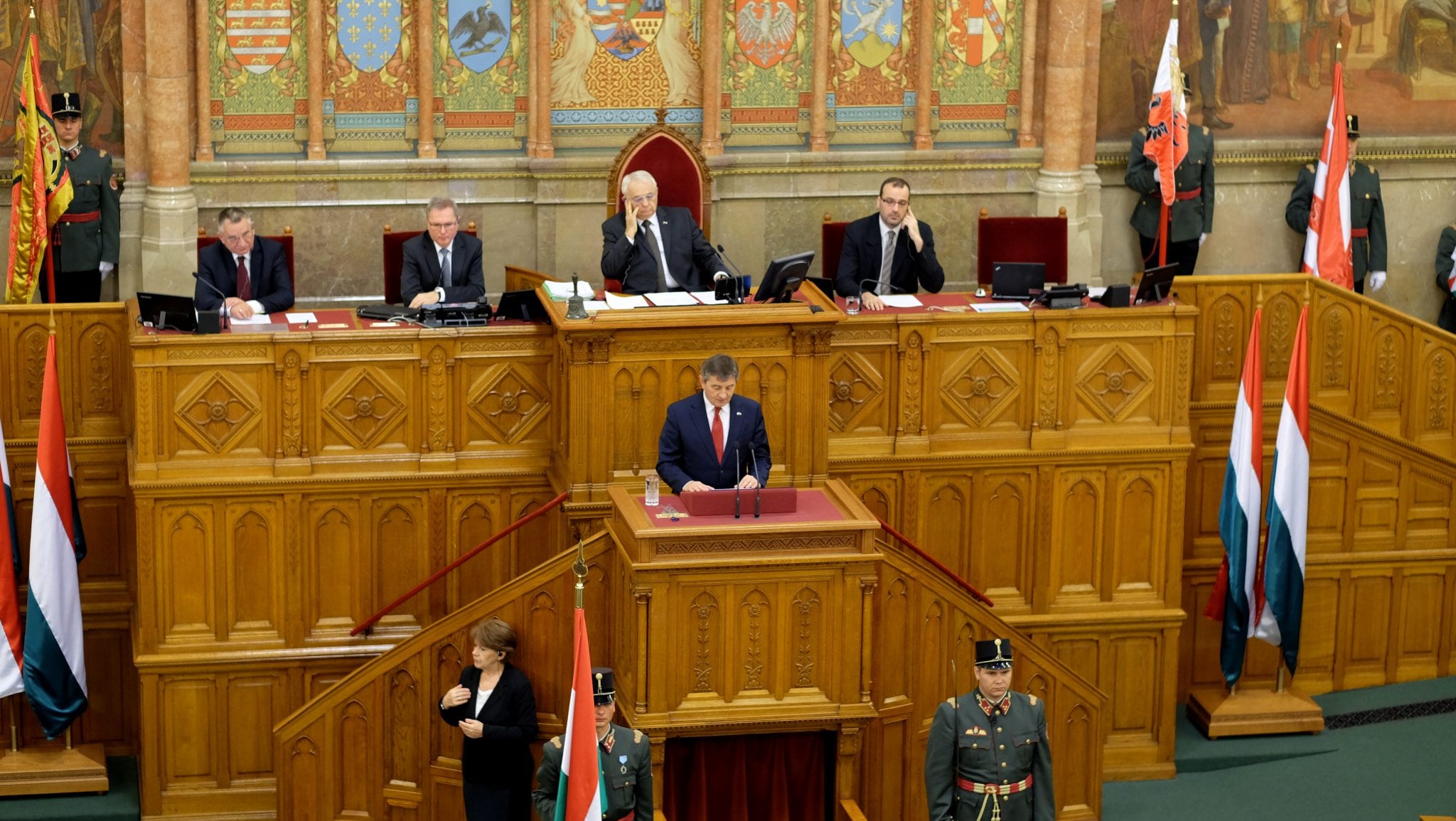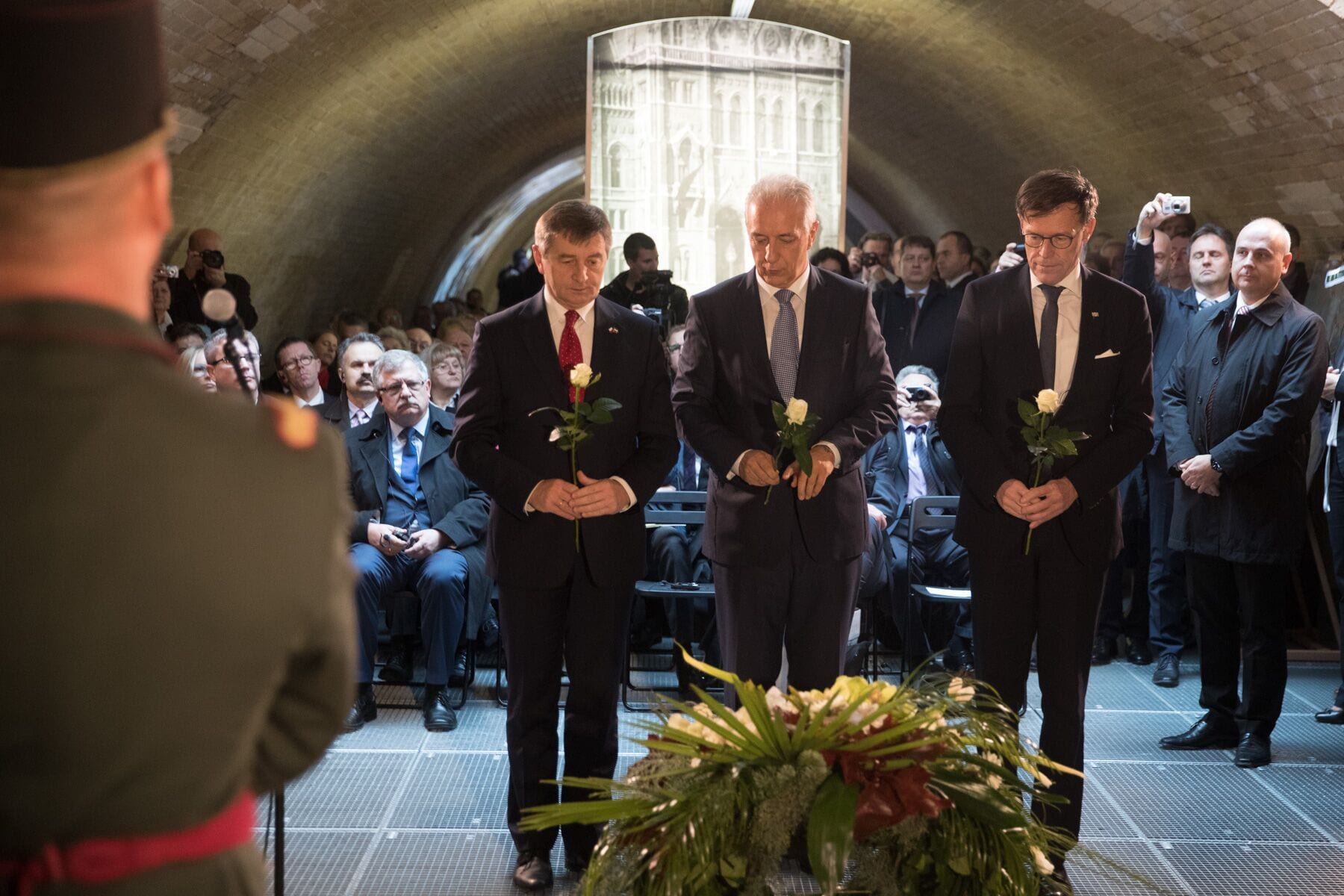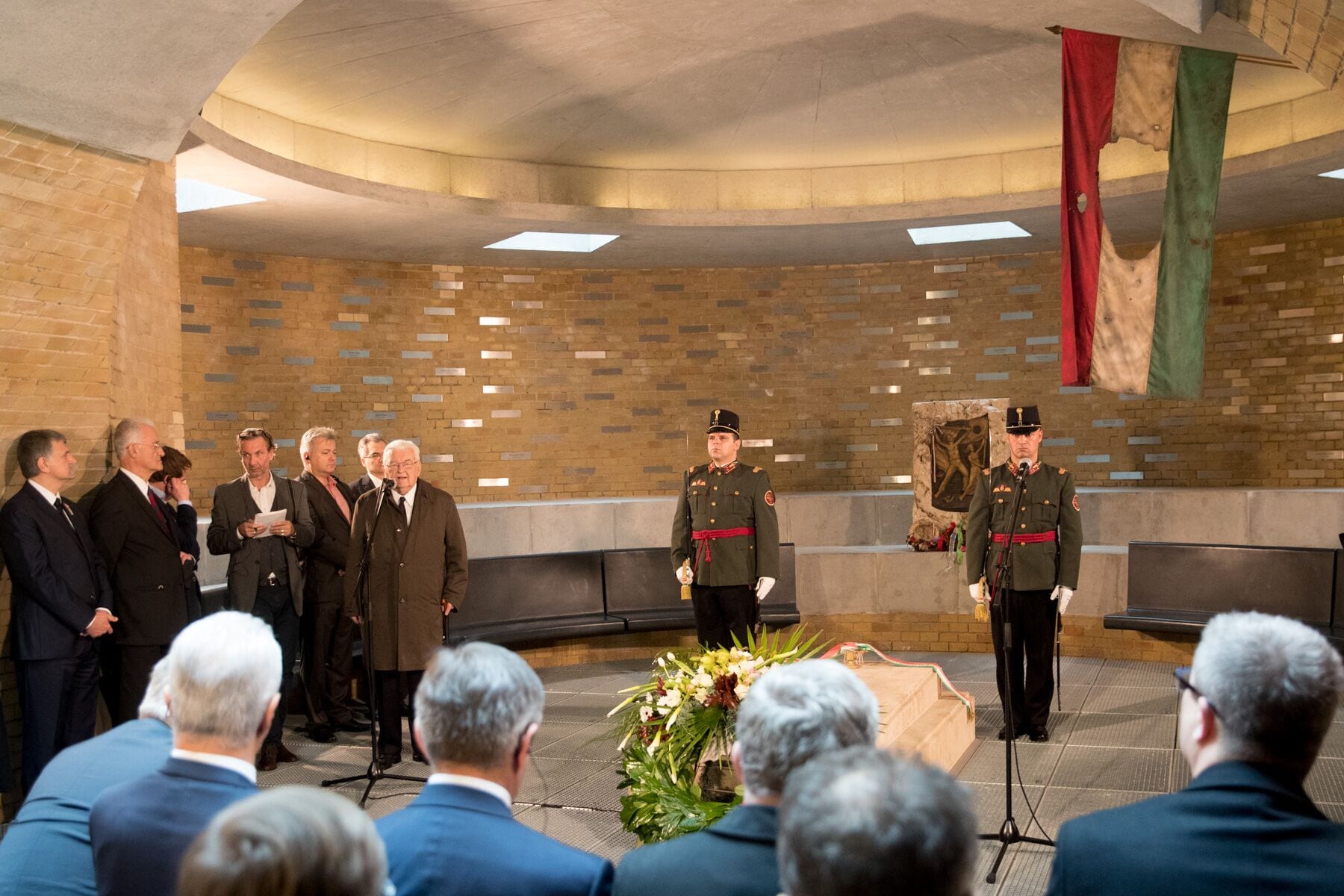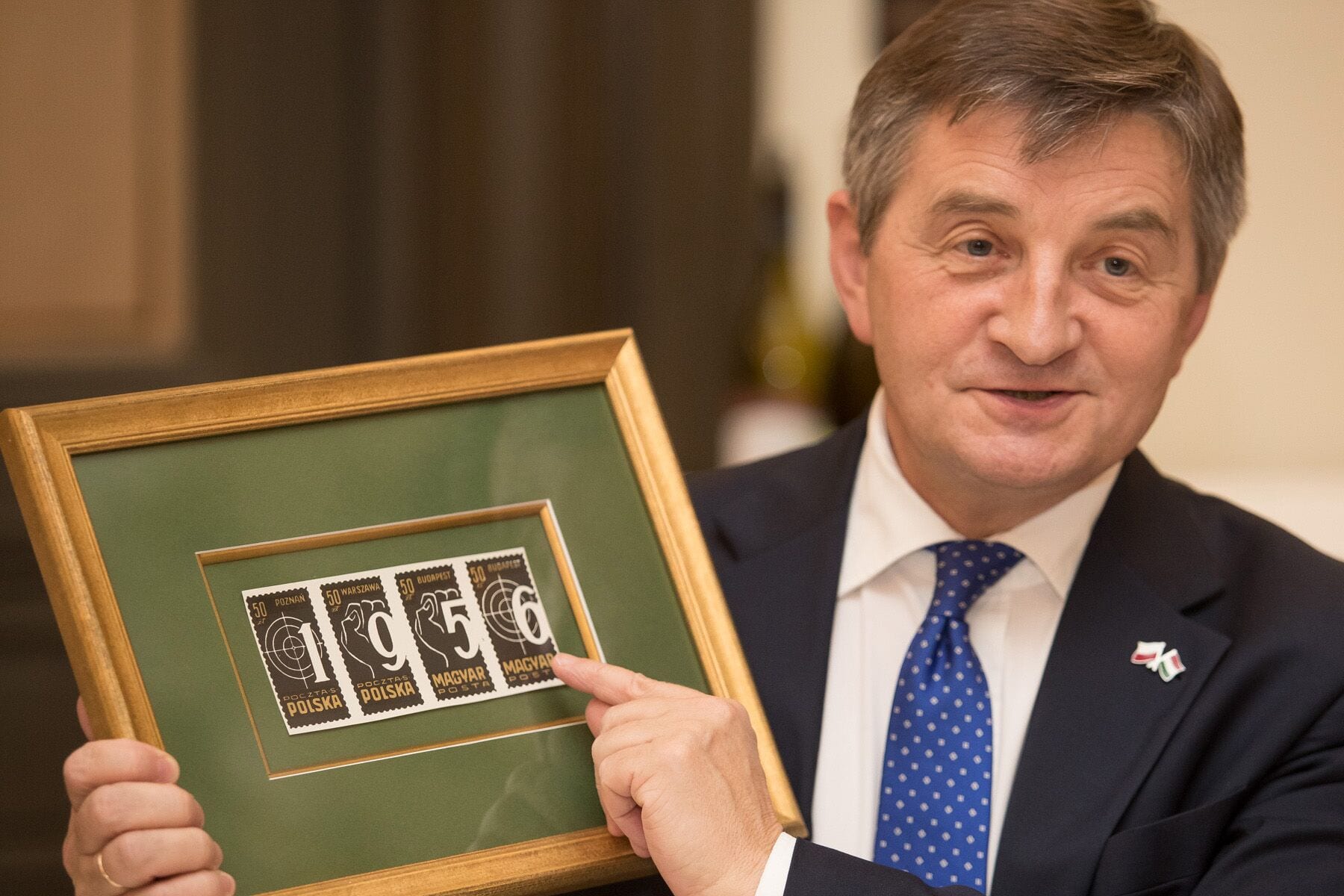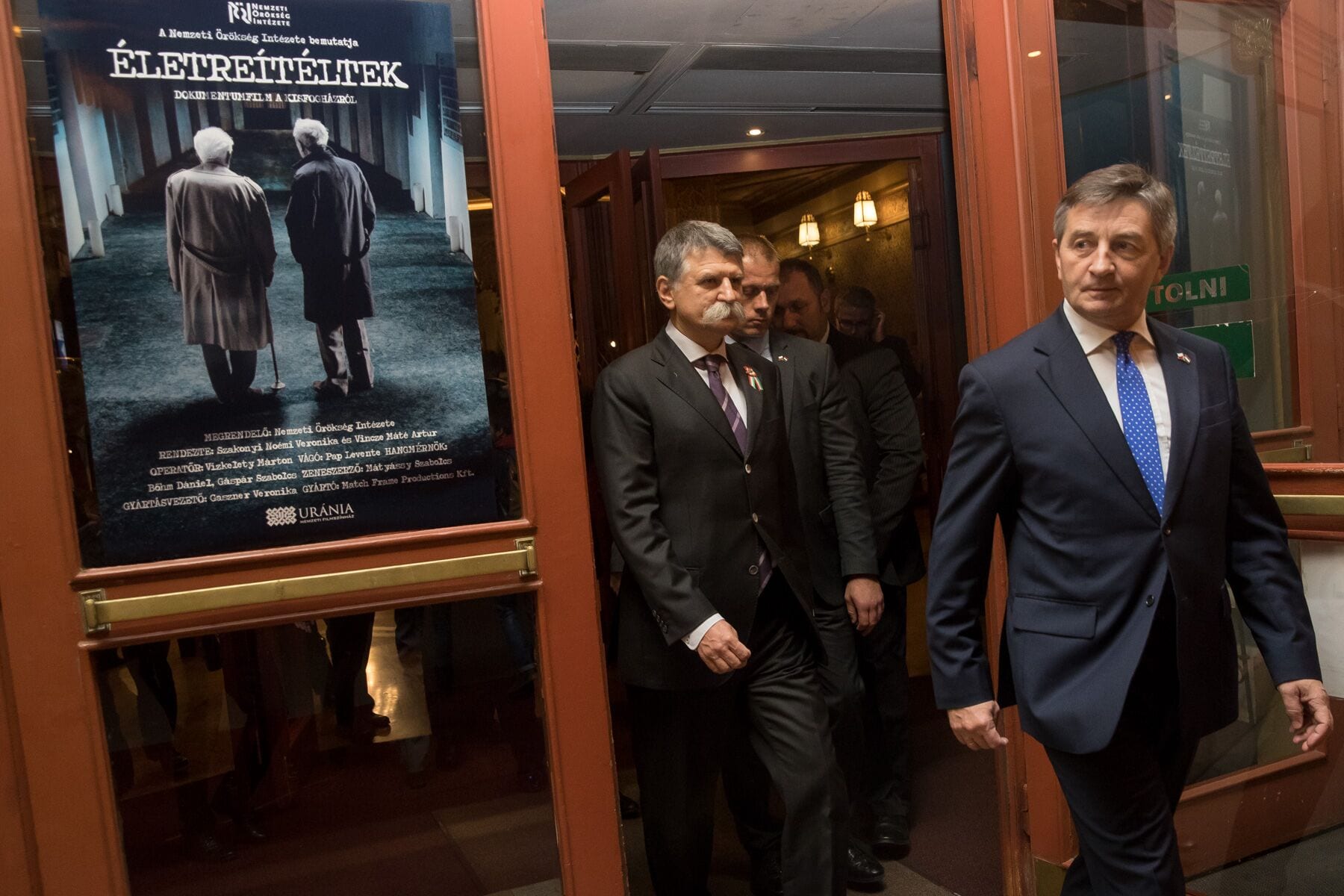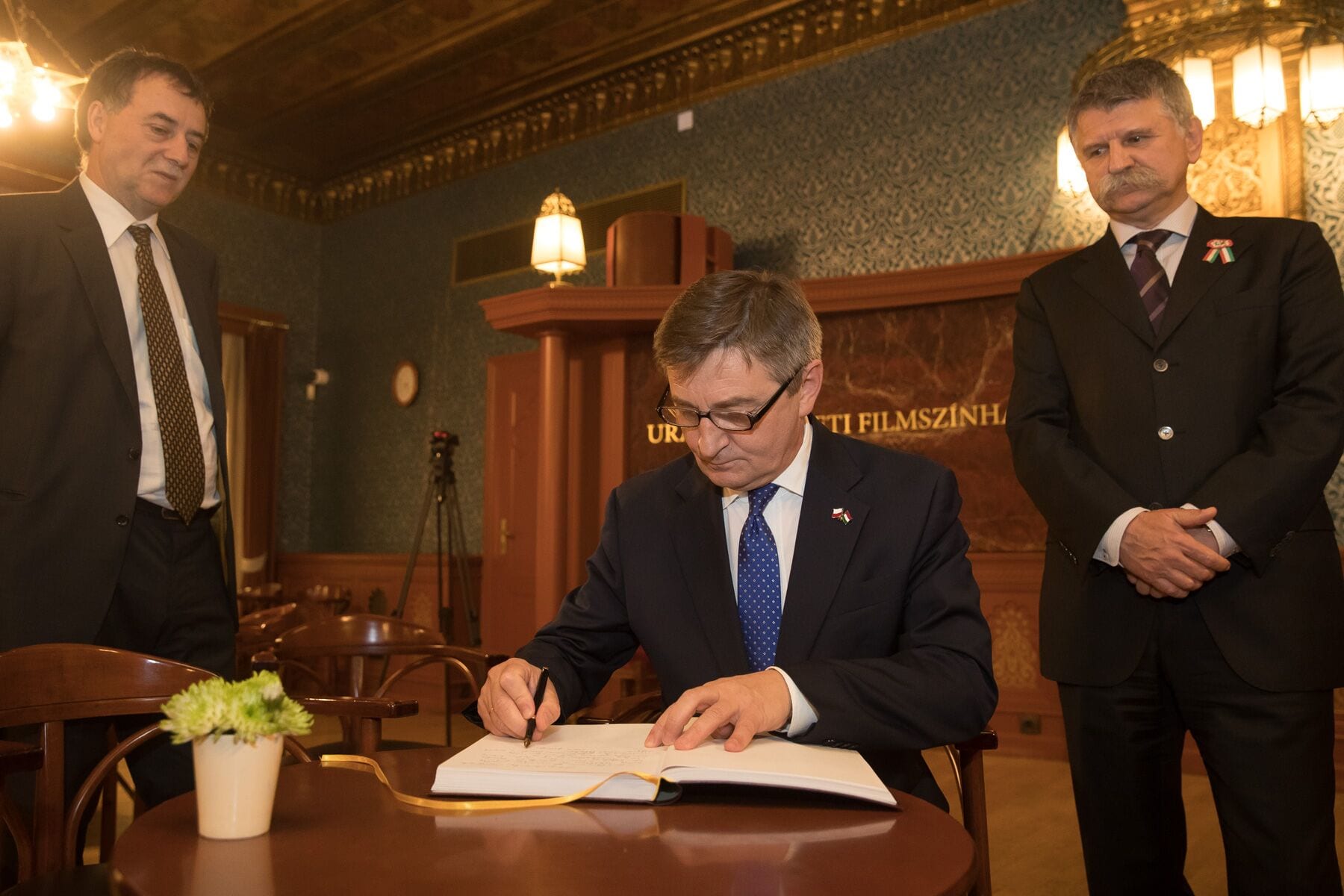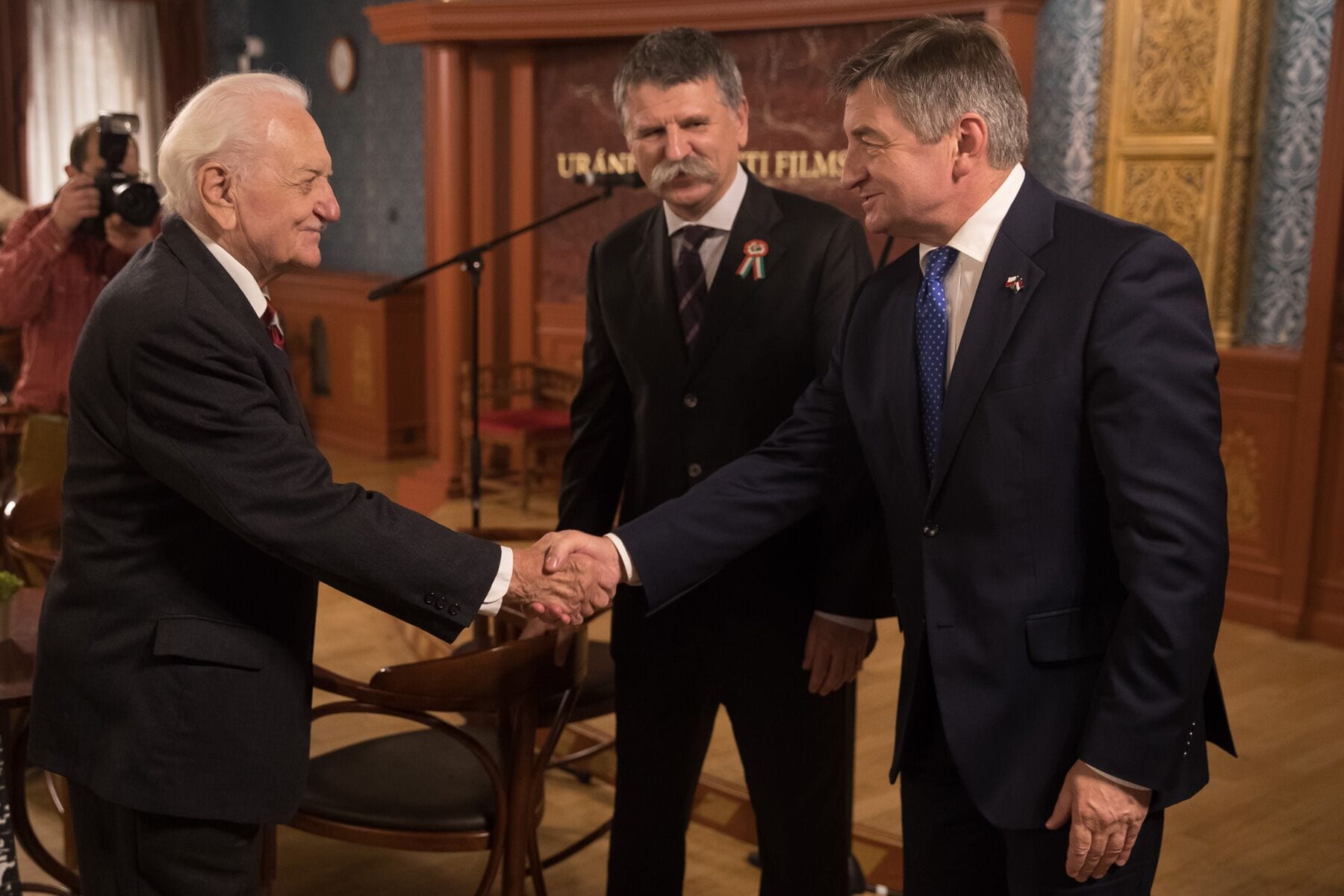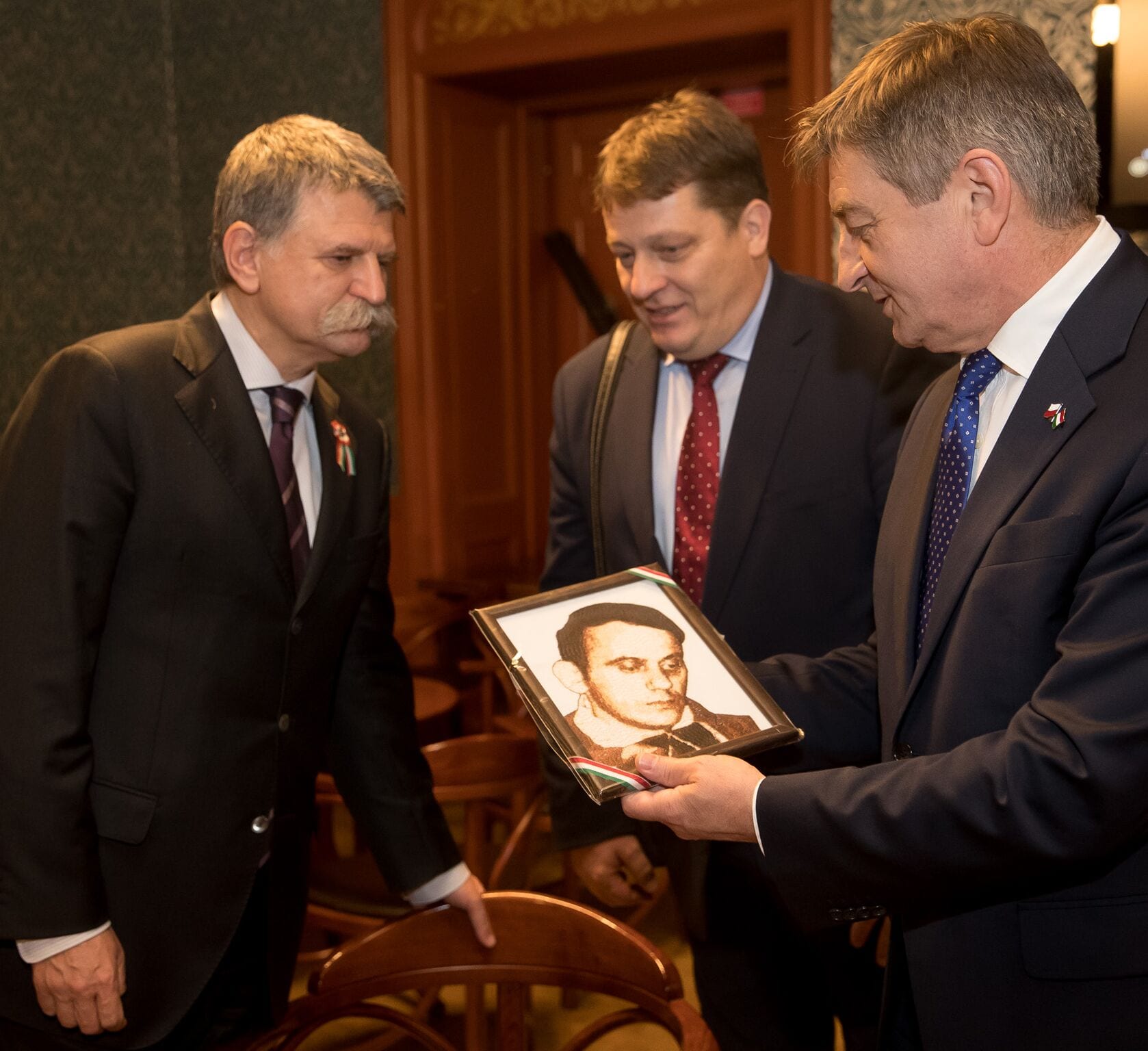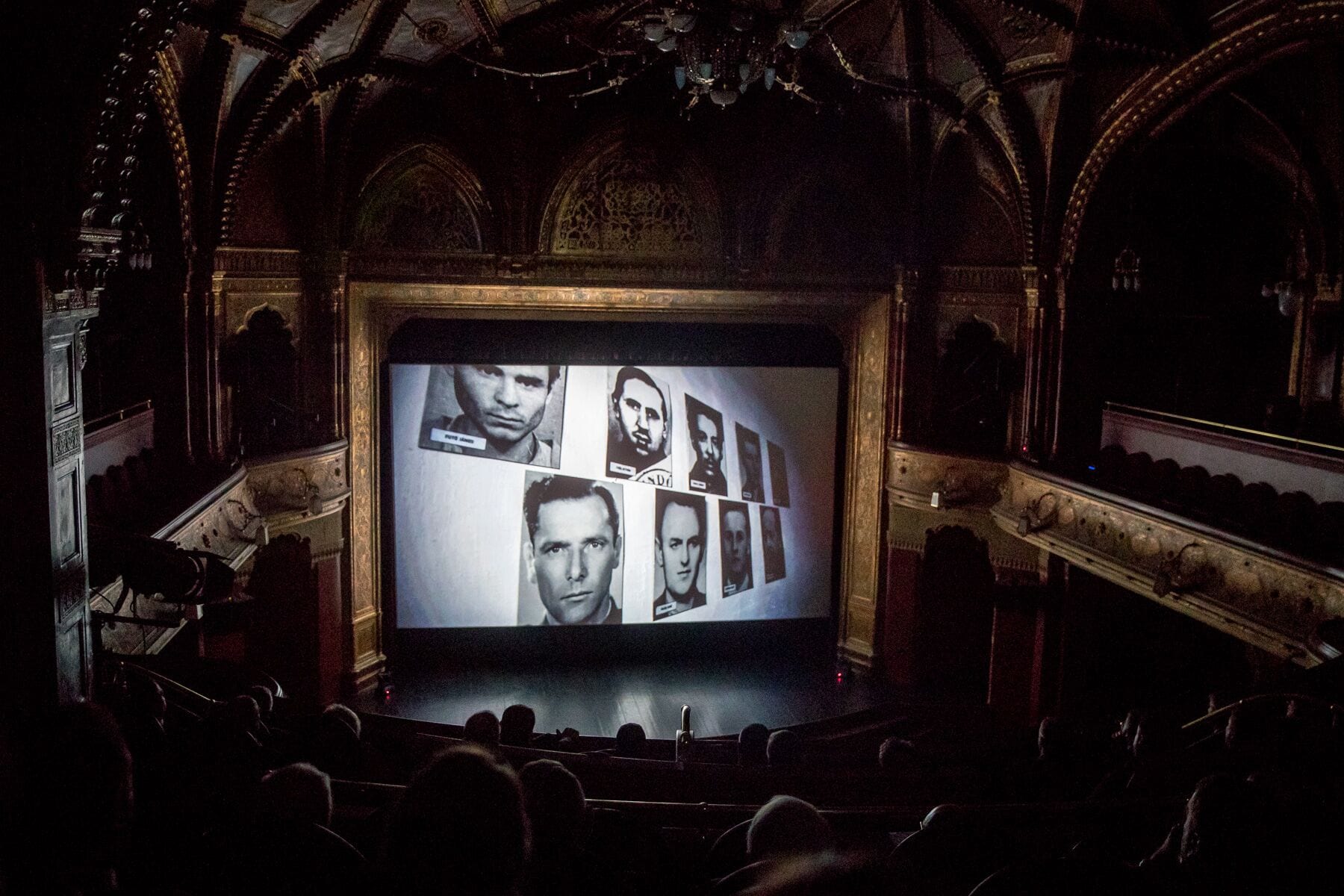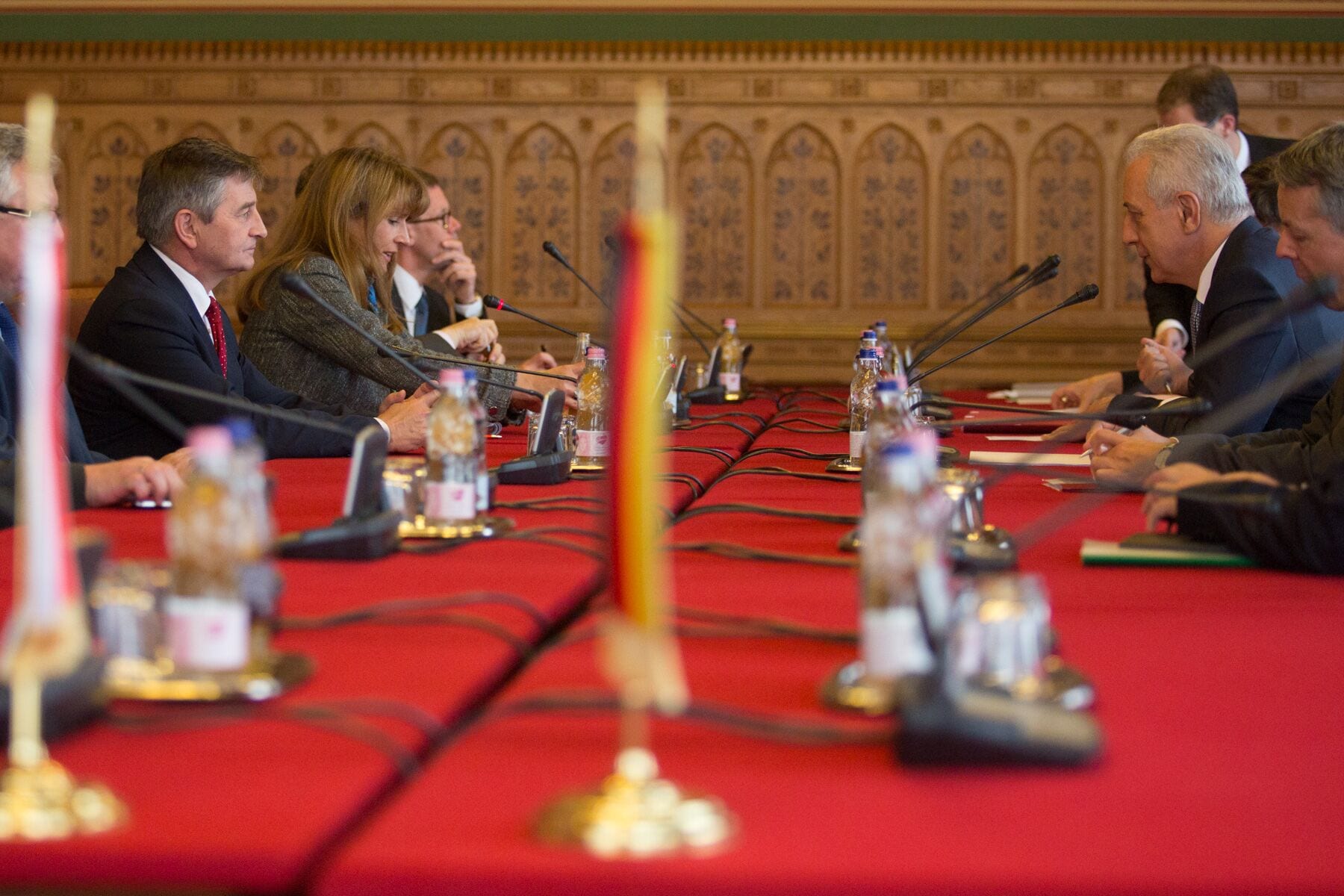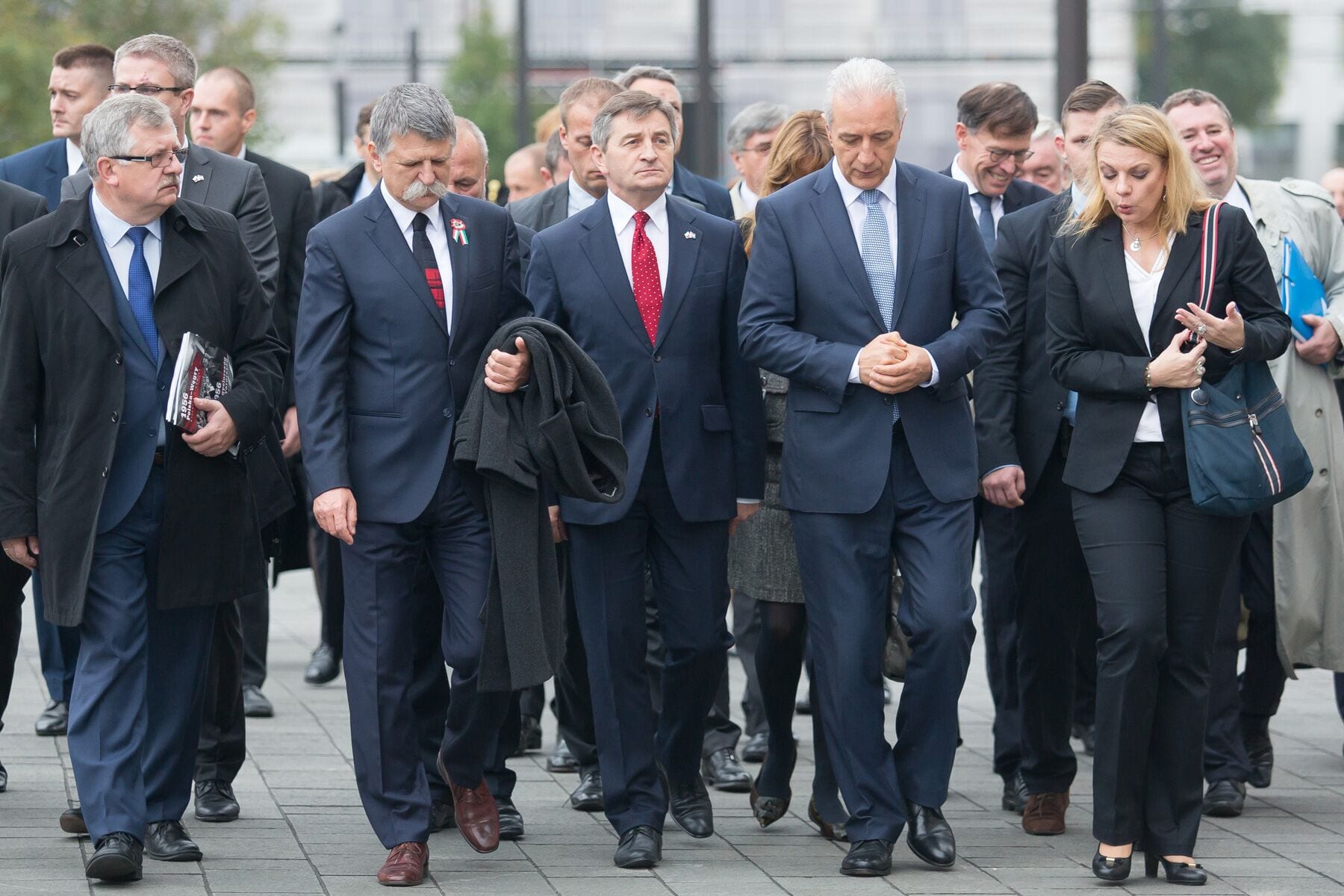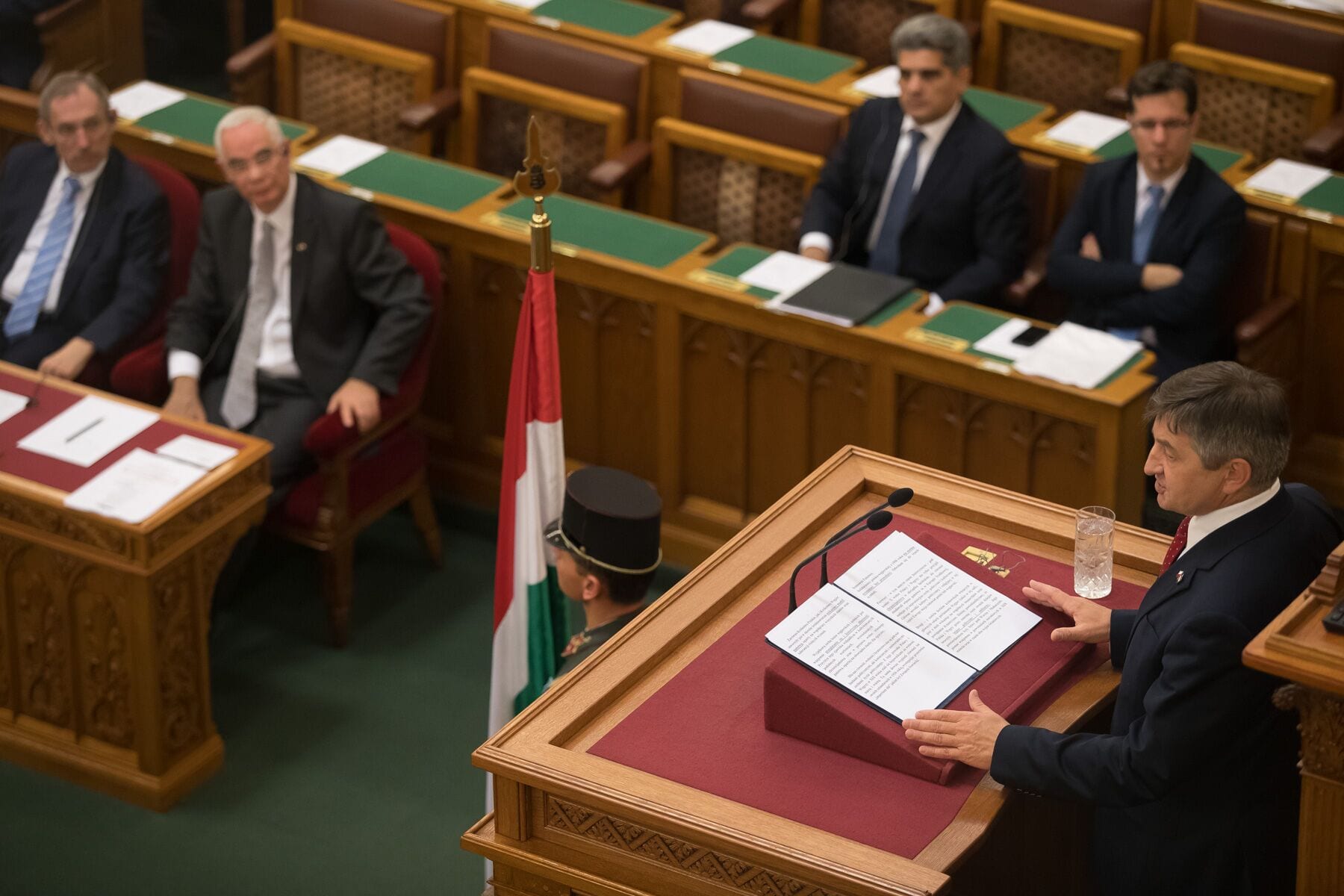Current politics, the increasing role of parliaments and the implementation of joint projects are the main topics of talks between the Speaker of the Sejm and the Speaker of the Hungarian National Assembly.
- We have been pursuing a common policy within the V4 for 25 years," Marshal Marek Kuchciński said during a meeting with President László Kövér, "but it has only been flourishing for the past few months in response to the need for change in the European Union.
According to the Marshal, the increased cooperation should be transformed into joint projects, such as an online information service, aimed at promoting the Group, recalling prominent figures or the importance of the fine arts of our region in order to foster the development of young people and prevent them from leaving their homelands.
- I wish us to draw the best possible conclusions from our thousand years of cooperation. I raise a toast to the strengthening of our democracy and our parliaments, which since middle ages have been an example of how sovereign states should act - said Marshal Kuchciński at the end of the meeting.
The Speaker of the Sejm visited Budapest as part of the celebrations marking the 60th anniversary of the Hungarian Revolution. Together with the Speaker of the Hungarian Parliament he watched the film 'Condemned to Life', which is a weaving together of the stories of political prisoners from their stay in prison cells and execution sites. The film, which was commissioned by the National Heritage Institute and produced under Kövér's patronage, deals with the trauma of those years, the recurring memories of tragedy and powerlessness in the face of the communist system.
During the second day of the visit, heads of the Polish, German, and Hungarian chambers paid tribute to the victims of the 1956 regime at Kossuth Square. Marshal Kuchciński, together with President Kövér and Bundesrat leader Stanislav Tillich, listened to the memories of the bloodily suppressed Hungarian uprising, which gave a grim picture of those days. Hungary is changing political system, our nation is reborn, but we should remember the decades during which we were strangled. This needs to be healed," said former Hungarian Prime Minister Peter Boross.
- With reverence we must remember the persecuted, bearing the stigma of those days. These people are the source of our strength. At the same time we cannot be indifferent towards traitors and collaborators who wanted to steal freedom from our hearts
- concluded Boross.
The fight for sovereignty was the guiding principle in the speeches of all the heads of parliament present in Budapest. The first to speak in the Hungarian National Assembly was L. Kövér, who said, "For centuries the supreme goal for Hungarians was freedom... Solidarity is the source of power. Europe cannot be deprived of its Christian identity, otherwise it is threatened by anarchy and destabilization".
Also S. Tillich emphasized that one should be constant in one's views. - Those who went to the tanks at that time did not fight only for their country. They were fighting for the whole Europe - he said. According to him, communism was doomed to failure. It could not survive because dictators were unable to see into people's minds or understand their longing for freedom. He described 1989, when the Solidarity movement brought about changes in the political system, as the happiest year in German history.
The Polish-Hungarian Solidarity of 1956 cannot be understood without the past. Regardless of the differences, our fate after World War II was identical. We were behind the "Iron Curtain". In 1956 Poles and Hungarians again reached for the deed of independence and in mutual solidarity took up the struggle for the state, values and democracy. - We are grateful for the Hungarian memory of the Poles' solidarity in 1956. It was shown in the form of humanitarian transports and blood deliveries for fighting insurgents, which is so beautifully commemorated by the plaque unveiled a few days ago at Joseph Bem Square in Budapest,' he said.
When the uprising in Hungary broke out and was later suppressed, the Poles launched a spontaneous campaign to donate blood for the Hungarians - 44 tons of medical supplies and 800 liters of blood were then sent to Hungary.


